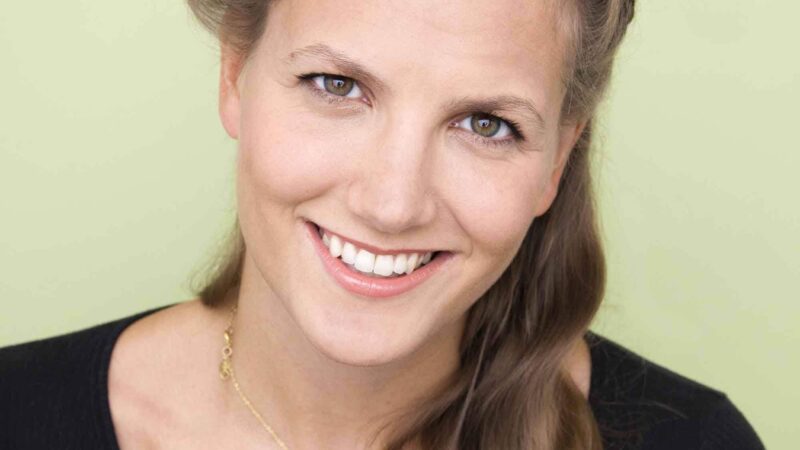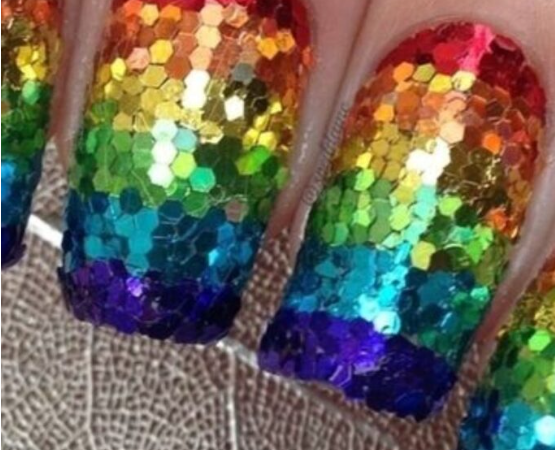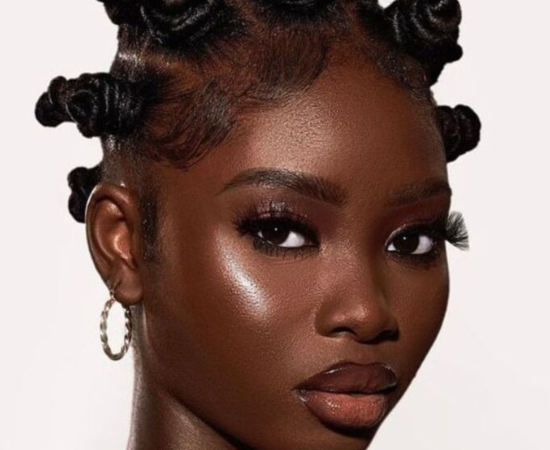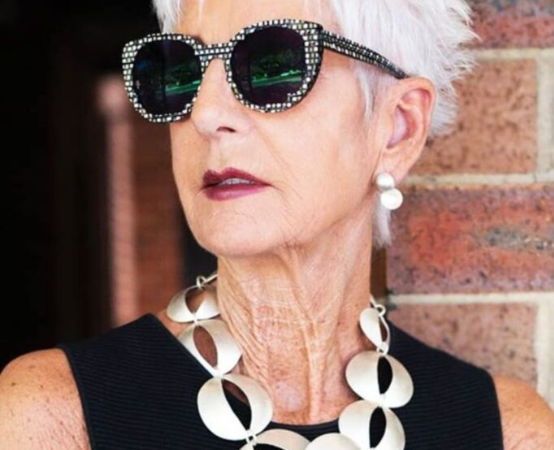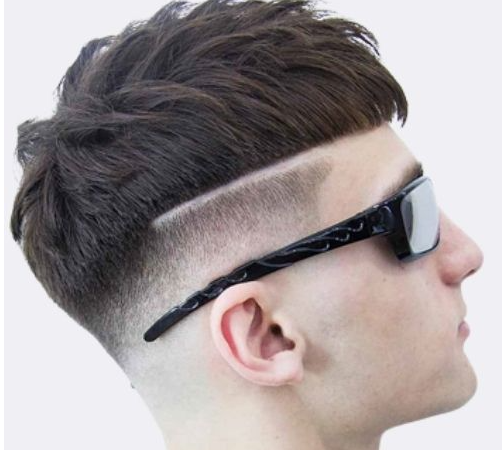How To Get Rid Of Blackheads On Nose?
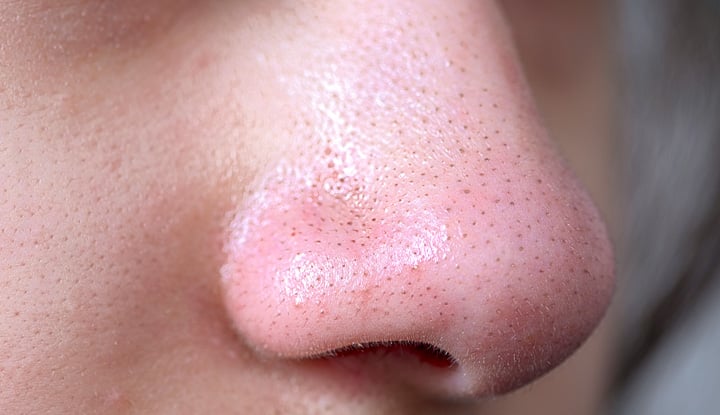
Blackheads on nose – Blackheads are a common skin problem many people struggle with. Small, dark bumps form when the pores on your nose get clogged with oil, dead skin cells, and bacteria. Blackheads can make your nose look dull and dirty and be hard to get rid of. But don’t worry; there are some effective ways to treat and prevent blackheads on your nose. In this article, we will explain what causes blackheads on the nose, how to remove them safely, and how to keep your nose clear and smooth.
Read More – 25+ Long Acrylic Birthday Nails That Will Make You Look Attractive
How To Get Rid Of Blackheads On Nose?
Home remedies for blackhead removal:
Many home remedies claim to help you get rid of blackheads on nose, but not all of them are effective or safe. Some of the most popular and recommended ones are:
Oatmeal mask
Oatmeal is a natural ingredient that can exfoliate and moisturize your skin, reducing irritation and adding moisture. To make an oatmeal mask, combine two tablespoons of oatmeal, three tablespoons of plain yoghurt, and the juice of half a lemon in a bowl. Mix well and apply the paste to your nose with clean fingers. Let it sit for 5 to 10 minutes before gently wiping and rinsing it with warm water. Do this once a week for the best results.
Sugar scrub
Sugar is another natural exfoliant that can remove dead skin cells and oil from your pores. Mix four tablespoons of jojoba oil and 1 cup of brown or white sugar in a bowl to make a sugar scrub. Wet your nose and rub the scrub gently on your nose in circular motions. Rinse with warm water and pat dry. Do this once or twice a week, depending on your skin type.
Pore strips
You apply These adhesive strips to your nose and peel off after a few minutes. They can temporarily remove some blackheads from your nose by removing the oxidized oil and dirt that clog the pores. However, they do not prevent blackheads from returning, and they may also remove some of the beneficial natural oils and hair follicles from your skin. Use pore strips after steaming your face to open up the pores for best results, and follow up with a moisturizer to hydrate your skin.
Clay mask
Clay masks are made of natural minerals that can absorb excess oil and impurities from your skin, making it smooth and clear. They can also tighten your pores and improve blood circulation to your face. One of the most popular clay masks is bentonite clay, which you can find online or at health stores. To use a clay mask, mix one tablespoon of bentonite clay with enough water or apple cider vinegar to make a smooth paste. Apply it to your nose and let it dry for 10 to 15 minutes. Then, rinse it off with warm water and pat dry. Do this once or twice a week.
You can try these home remedies to get rid of blackheads on your nose.
Read More – 25+ Best Wash And Wear Haircuts For Over 60
Over-The-Counter Treatments and Medications:
Over-the-counter treatments and medications are products that you can buy without a prescription to help you treat and prevent acne, including blackheads. Blackheads are small, dark bumps that form when the pores on your nose get clogged with oil, dead skin cells, and bacteria. They can make your nose look dull and dirty and be hard to eliminate.
Depending on their active ingredients and how they work, there are different over-the-counter treatments and medications for blackheads. Some of the most common ones are:
Benzoyl
peroxide is a potent component targeting acne by eradicating acne-causing bacteria, minimizing skin oil production, and eliminating accumulated skin cells that could obstruct pores. Available in concentrations ranging from 2.5% to 10%, benzoyl peroxide products exhibit comparable effectiveness across different concentration levels, as research indicates. However, cautious application is advised due to potential side effects such as dryness, scaling, irritation, burning, and stinging, particularly for individuals with sensitive skin. Users should also be mindful of the bleaching effect on hair and clothing when using benzoyl peroxide.
Adapalene
Adapalene is categorized as a retinoid and is instrumental in unclogging pores and preventing new acne outbreaks. Accessible without a prescription, adapalene gel (sold as Differin) holds a 0.1% concentration. It is crucial to avoid applying this gel to skin with cuts, sunburn, or eczema rashes. While a slight tingling sensation might be experienced during the application, it will dissipate quickly. Potential side effects encompass dryness, scaling, and skin inflammation. To alleviate these symptoms, a non-oily, noncomedogenic moisturizer is recommended.
Salicylic acid
Salicylic acid is another essential ingredient for managing acne by aiding in pore clearance and breakout prevention. This component is available over-the-counter in concentrations ranging from 0.5% to 2%, offered in both leave-on and wash-off formulations. Salicylic acid is particularly effective for individuals with blackheads and whiteheads, as it dissolves the substances responsible for pore blockage, namely excess oil and dead skin cells. Side effects include a slight stinging sensation, minor skin irritation, and potential discolouration.
These are some of the over-the-counter treatments and medications you can try to eliminate blackheads on your nose. However, remember that these products may only work for some and may take some time to show results. Always follow the directions on the label and use them as directed by your doctor or pharmacist.
Professional Treatments to get rid of blackheads on nose
You have several options if you are looking for professional treatments to eliminate nose blackheads. According to the web search results, some of the most common and effective treatments are:
- Prescription-strength retinoids and azelaic acid: These topical medications can help unclog pores, reduce inflammation, and prevent new blackheads from forming. They may also improve the appearance of acne scars and hyperpigmentation. However, they can cause side effects such as dryness, peeling, redness, and sensitivity to sunlight. You will need a prescription from a dermatologist to use these products.
- Blackhead extraction: This procedure involves using a special tool to squeeze out the blackheads from your nose gently. An aesthetician can do it during a facial or by a dermatologist in a clinic. Blackhead extraction can instantly clear your blackheads on nose, but it may also cause some pain, bleeding, bruising, or infection. You will need to follow proper aftercare instructions to avoid these complications.
- Microdermabrasion: This procedure removes the top layer of skin using a device that sprays tiny crystals or a diamond-tipped wand. It can help exfoliate your skin, unclog your pores, and smooth your skin texture. Microdermabrasion can also reduce the appearance of fine lines, wrinkles, and sun damage. However, it can also cause irritation, redness, swelling, or sensitivity. You will need to avoid sun exposure and use moisturizer after the procedure.
- Laser therapy: This procedure uses a high-intensity light beam to target and destroy the oil glands that produce sebum. It can help reduce the oil on your skin and prevent new blackheads from forming. Laser therapy can also improve the appearance of acne scars and uneven skin tone. However, it can also cause discomfort, burning, scarring, or changes in pigmentation. You will need to wear sunscreen and avoid sun exposure after the procedure.
How To Prevent Blackheads?
Blackheads are a common skin problem that many people want to avoid. They are caused by clogged pores that contain oil, dead skin cells, and bacteria. They appear as dark spots on the skin, especially on the nose, forehead, and cheeks. Fortunately, there are some steps you can take to prevent blackheads from forming or worsening. Here are some tips based on the web search results:
- Wash your face twice daily with a gentle cleanser containing salicylic acid or benzoyl peroxide. These ingredients can help remove excess oil and dead skin cells from your pores and prevent acne.
- Moisturize your skin after washing with a non-comedogenic product that won’t clog your pores. This can help balance your skin’s oil production and hydration levels.
- Exfoliate your skin once or twice a week with a scrub or a mask that contains natural ingredients such as oatmeal, sugar, or clay. These can help remove impurities and unclog your pores.
- Avoid touching your face or picking at your blackheads, as this can introduce more bacteria and inflammation to your skin. Use clean tissue or a blackhead extractor tool to remove blackheads, if necessary, gently.
- Protect your skin from the sun by wearing sunscreen and avoiding excessive sun exposure. The sun can damage your skin, making it more prone to blackheads and other problems.
- Eat a healthy diet that includes plenty of fruits, vegetables, whole grains, and lean proteins. These foods can give your skin essential nutrients and antioxidants to help prevent blackheads and improve overall health.
- Drink plenty of water to keep your skin hydrated and flush out toxins from your body. Water can also help regulate your oil production and prevent dryness or irritation.
These are some ways to prevent blackheads from forming on your nose or other parts of your face.
Read More – Which Types Of Bangs Will Suit Your Face Shape?
FAQs About Blackheads
1. What are blackheads, and how are they different from other types of acne?
Blackheads, also known as open comedones, are acne characterized by small, dark-coloured bumps on the skin. They form when hair follicles become clogged with dead skin cells, oil (sebum), and bacteria. Unlike whiteheads, which are closed comedones with a white or flesh-coloured appearance, blackheads have an open surface exposed to air, causing them to oxidize and turn dark.
2. Can I remove blackheads at home or seek professional help?
Removing some blackheads at home is possible, but it’s important to do so carefully to avoid damaging your skin or causing infections. Using proper tools like blackhead extractors and practising good hygiene can help. However, it’s best to seek professional help from a dermatologist or licensed aesthetician for stubborn blackheads or unsure about the removal process. They have the expertise to extract blackheads safely and provide appropriate guidance.
3. How can I prevent blackheads from forming in the first place?
Preventing blackheads involves maintaining a consistent skincare routine and adopting healthy habits. Cleanse your face twice daily using a gentle cleanser to remove excess oil and dirt. Regular exfoliation helps to remove dead skin cells that contribute to clogged pores. Use non-comedogenic skincare products and avoid heavy, pore-clogging makeup. Protect your skin from excessive sun exposure and avoid touching your face with unwashed hands. Consistently following these practices can help prevent the formation of blackheads.
4. Are there any over-the-counter products that effectively treat blackheads?
Yes, there are several over-the-counter products formulated to target blackheads. Look for products containing ingredients like salicylic acid, benzoyl peroxide, glycolic acid, or alpha hydroxy acids (AHAs). Salicylic acid helps exfoliate and unclog pores, while benzoyl peroxide kills bacteria and reduces oil. AHAs and glycolic acid promote skin cell turnover, which can prevent and improve the appearance of blackheads. Remember to patch-test any new product and introduce it gradually into your skincare routine to avoid irritation.

